PRF Injection (TMJ and Facial)
Restore comfort and natural radiance.Using your ow...
Restore comfort and natural radiance.Using your ow...

Introducing Our New Diagnostic Imaging Cone Beam C...
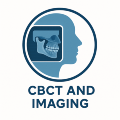
Neuromodulator injections, such as Botox (botulinu...
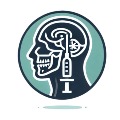
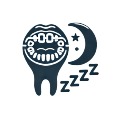
Sleep disorders, such as Obstructive Sleep Apnea (...
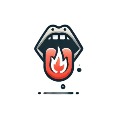
Burning Mouth Syndrome (BMS) is a chronic conditio...
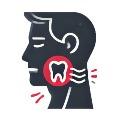
Orofacial pain refers to any pain experienced in t...

Welcome to the Kelowna Oral Medicine and TMJ Clinic, your dedicated partner in oral health and comfort! Located in the heart of Kelowna, we specialize in providing compassionate and expert care for pa...
Oral mucosal lesions are abnormal changes or growths that appear on the lining of the mouth, including the cheeks, gums, tongue, lips, and floor or roof of the mouth.
These lesions can vary in appearance, size, shape, and color, and may present as red or white patches, ulcers, lumps, or areas of discoloration.
They can be caused by a variety of factors, including infections, trauma, irritants, allergic reactions, autoimmune conditions, or systemic diseases.
At Kelowna Oral Medicine and TMJ Clinic, we specialize in the evaluation, diagnosis, and management of all types of oral mucosal lesions.
Led by Dr. Tareq Aldajani (Dr. T), the only Oral Medicine Specialist in Interior BC, our team is dedicated to providing you with expert care and peace of mind. If you have noticed any unusual changes in your mouth, don’t wait—schedule a consultation with us today for a thorough evaluation.
Temporomandibular Joint (TMJ) Disorders are conditions that affect the jaw joint and the muscles that control jaw movement. The TMJ connects your jawbone to your skull and is crucial for everyday functions like chewing, speaking, and yawning.
TMJ disorders can cause pain, discomfort, and limited movement in the jaw, and they may impact your overall quality of life if not properly managed.
Common Symptoms of TMJ Disorders:
• Jaw pain or tenderness.
• Clicking, popping, or grating sounds when opening or closing the mouth.
• Difficulty or discomfort while chewing.
• Locking of the jaw joint, making it difficult to open or close the mouth.
• Headaches or earaches.
• Facial pain or swelling.
Causes and Risk Factors:
TMJ disorders can be caused by various factors, including:
• Injury to the jaw or head.
• Arthritis (such as osteoarthritis or rheumatoid arthritis).
• Clenching or grinding of teeth (bruxism).
• Dislocation or misalignment of the jaw joint.
• Stress, which can cause muscle tension in the jaw.
Diagnosis and Treatment:
Diagnosing TMJ disorders involves a comprehensive examination, which may include a review of symptoms, physical examination, imaging studies, and sometimes specialized tests.
Treatment options for TMJ disorders can vary based on the severity and underlying cause and may include:
• Lifestyle Modifications: Stress management, relaxation techniques, and avoiding hard or chewy foods.
• Medications: Pain relievers, anti-inflammatory medications, or muscle relaxants to reduce discomfort.
• Oral Appliances: Custom-made splints or mouthguards to reduce clenching or grinding and to alleviate strain on the jaw joint.
• Physical Therapy: Exercises to improve jaw strength and mobility.
• Injections or Surgery: In severe cases, corticosteroid injections, Botox, or surgical interventions may be recommended.
At Kelowna Oral Medicine and TMJ Clinic, we specialize in diagnosing and managing TMJ disorders. Led by Dr. Tareq Aldajani (Dr. T), the only Oral Medicine Specialist in Interior BC, our team is committed to providing expert care that helps relieve pain, improve jaw function, and restore your quality of life.
If you're experiencing jaw pain, clicking, or difficulty moving your jaw, don’t wait—schedule a consultation with us today for a thorough evaluation and personalized treatment plan.
Burning Mouth Syndrome (BMS) is a chronic condition characterized by a burning or scalding sensation in the mouth, typically affecting the tongue, lips, gums, palate, or the entire mouth. This discomfort can be persistent or intermittent, and often occurs without any visible signs of irritation or abnormalities. BMS can significantly impact a person’s quality of life, affecting eating, speaking, and general comfort.
Symptoms of Burning Mouth Syndrome:
• A burning or scalding sensation in the mouth, which may worsen throughout the day.
• Dry mouth or a feeling of thirst.
• Altered taste (bitter or metallic).
• Tingling, numbness, or a "pins and needles" feeling in the mouth.
• Increased sensitivity to hot or spicy foods.
Causes and Risk Factors:
The exact cause of BMS is often unknown, making it a complex condition to diagnose and treat.
However, it can be categorized into two types:
Primary BMS: No identifiable underlying cause; often linked to nerve dysfunction or damage.
Secondary BMS: Caused by an underlying condition, such as:
• Hormonal changes (e.g., menopause).
• Nutritional deficiencies (e.g., vitamin B12, iron, or folic acid).
• Fungal infections (e.g., oral thrush).
• Dry mouth (xerostomia).
• Allergic reactions to dental materials, foods, or medications.
• Gastroesophageal reflux disease (GERD).
• Anxiety, depression, or stress.
Diagnosis and Treatment:
Diagnosing BMS involves a thorough evaluation of symptoms, medical history, and ruling out other potential causes. Tests may include blood tests, saliva tests, allergy tests, or oral swabs.
Treatment options focus on managing symptoms and addressing any underlying causes. They may include:
• Medications: Topical treatments (such as mouth rinses or gels), pain relievers, antidepressants, or medications that address nerve pain.
• Nutritional Supplements: To correct deficiencies that may be contributing to the symptoms.
• Saliva Substitutes: To alleviate dry mouth.
• Behavioral Therapy: Cognitive behavioral therapy (CBT) or other strategies to manage anxiety, depression, or stress.
• Lifestyle Modifications: Avoiding irritants such as tobacco, alcohol, spicy foods, or certain oral hygiene products.
At Kelowna Oral Medicine and TMJ Clinic, we specialize in diagnosing and managing Burning Mouth Syndrome. Led by Dr. Tareq Aldajani (Dr. T), the only Oral Medicine Specialist in Interior BC, our team provides a personalized approach to treatment, ensuring you receive the best care to relieve your symptoms and improve your quality of life.
If you are experiencing a persistent burning sensation in your mouth, don’t hesitate to seek expert care. Schedule a consultation with us today to find relief from the discomfort of Burning Mouth Syndrome.
Your comfort is our priority!
Neuromodulator injections, such as Botox (botulinum toxin), are increasingly used in dentistry and oral medicine to effectively manage various conditions, including facial pain, bruxism (teeth grinding), and Temporomandibular Joint Disorders (TMD). These injections help alleviate muscle tension and pain by temporarily relaxing targeted muscles, providing relief and improving quality of life.
How Do Neuromodulator Injections Work?
Neuromodulators like Botox work by blocking the nerve signals responsible for muscle contractions. When injected into specific muscles, these agents reduce excessive muscle activity and associated pain. This therapeutic approach can be particularly beneficial for patients with conditions that cause chronic facial pain, jaw tension, or damage to teeth and the temporomandibular joint due to bruxism.
Conditions Treated with Neuromodulator Injections:
• Facial Pain: Neuromodulator injections can effectively treat conditions like myofascial pain syndrome or chronic muscle pain in the face and jaw. By relaxing overactive muscles, these injections reduce pain and discomfort.
• Bruxism (Teeth Grinding): Bruxism involves involuntary grinding or clenching of teeth, often occurring during sleep. This condition can cause tooth wear, jaw pain, headaches, and damage to the temporomandibular joint. Neuromodulator injections into the masseter and/or temporalis muscles (the main muscles involved in chewing) can help reduce muscle activity, alleviating symptoms and protecting teeth and joints from further damage.
• Temporomandibular Joint Disorders (TMD): TMD encompasses various conditions affecting the jaw joint and surrounding muscles, often resulting in pain, restricted jaw movement, and joint noises (clicking or popping). Neuromodulator injections can help relax the muscles around the TMJ, reducing tension, pain, and improving jaw function.
Benefits of Neuromodulator Injections:
• Effective Pain Relief: Provides significant relief from facial and jaw pain associated with muscle overactivity.
• Non-Surgical Treatment: A minimally invasive procedure that offers an alternative to surgery or more invasive treatments.
• Quick and Convenient: The procedure is quick, typically taking only a few minutes, with minimal discomfort and downtime.
• Long-Lasting Effects: Effects can last several months, with many patients experiencing relief for 3 to 6 months or longer.
• Improved Quality of Life: Helps reduce pain, improve jaw function, and prevent further damage to teeth and joints.
What to Expect During the Procedure:
Neuromodulator injections are performed in a clinic setting. The treatment areas are identified based on the specific condition and patient needs. The injection sites are cleaned, and the neuromodulator is carefully injected into the targeted muscles using a fine needle. Most patients experience minimal discomfort, and there is no need for anesthesia. The procedure typically takes about 15-30 minutes, and patients can return to normal activities immediately afterward.
Who is a Candidate for Neuromodulator Injections?
Neuromodulator injections are suitable for:
• Patients with chronic facial pain or TMD who have not responded to other treatments.
• Individuals suffering from bruxism causing jaw pain, headaches, or tooth damage.
• Patients seeking a non-surgical, minimally invasive approach to managing their symptoms.
Safety and Side Effects:
Neuromodulator injections are generally considered safe, with minimal risk of side effects. Common side effects may include mild bruising or swelling at the injection site, temporary weakness in the injected muscles, or, rarely, headaches. These effects are typically short-lived and resolve on their own.
At Kelowna Oral Medicine and TMJ Clinic, we offer neuromodulator injections as a safe and effective treatment option for managing facial pain, bruxism, and TMD. Led by Dr. Tareq Aldajani (Dr. T), the only Oral Medicine Specialist in Interior BC, our team is dedicated to providing personalized care to help you achieve relief from pain and improve your quality of life.
If you’re experiencing persistent jaw pain, teeth grinding, or TMD symptoms, schedule a consultation with us today to learn how neuromodulator injections can help.
Feel Better, Live Better with Kelowna Oral Medicine and TMJ Clinic!

DDS, MSc (OMS), MOMS RCSEd, ABOMS, MSc (OM), FRCD(C)